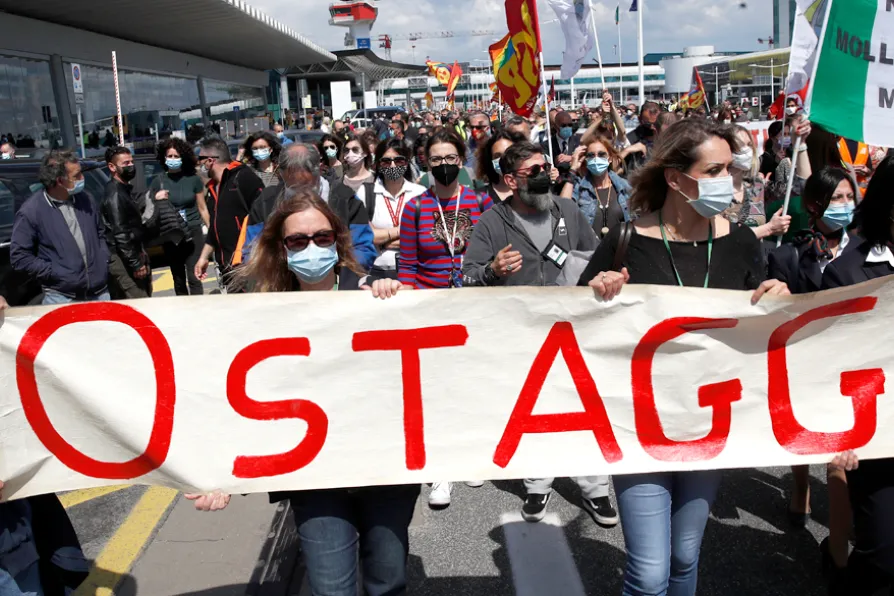Alvaro Uribe is found guilty of witness tampering and procedural fraud, reports NICK MACWILLIAM

 Alitalia workers with 'Hostages' banner at the Rome Leonardo da Vinci airport as unions discuss with the government the future of airline Alitalia last Friday
Alitalia workers with 'Hostages' banner at the Rome Leonardo da Vinci airport as unions discuss with the government the future of airline Alitalia last Friday
THE value of solidarity has never been so clear to so many people.
It has been clear simply in the way we have worn masks to protect others, it has been clear in the way workers put themselves at risk to keep essential services running and it’s been clear in the way trade unions won unprecedented support to save jobs and livelihoods during the pandemic.
In these difficult times, we have depended on one another. The enduring message of the labour movement has never been so powerful as in the circumstances we are marking May Day this year.

It is only trade union power at work that will materially improve the lot of working people as a class but without sector-wide collective bargaining and a right to take sympathetic strike action, we are hamstrung in the fight to tilt back the balance of power, argues ADRIAN WEIR

TONY BURKE says an International Labour Conference next month will try for a new convention to protect often super-exploited workers providing services such as ride-hailing (taxis) such as Uber as well as fast food and package delivery

Research reveals stress kills three times the number of people than physical accidents at work











